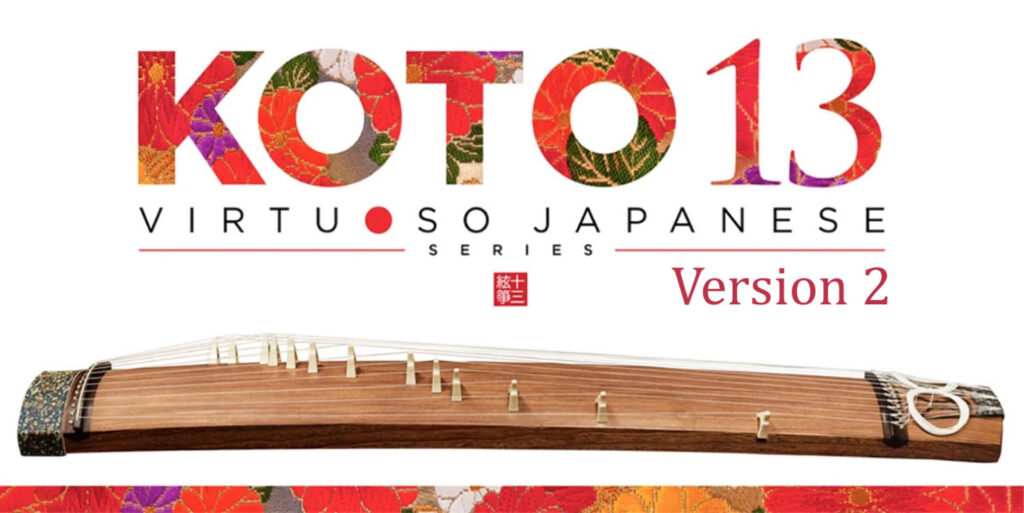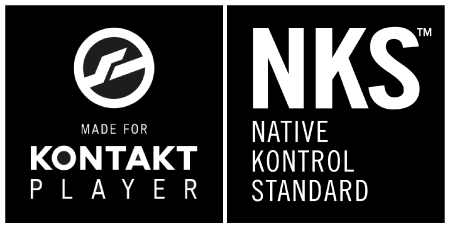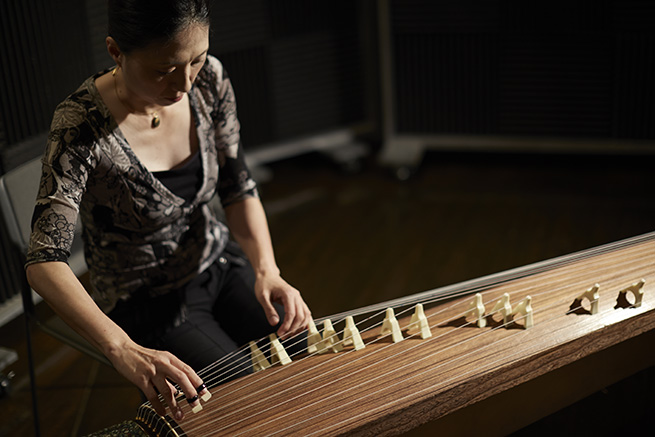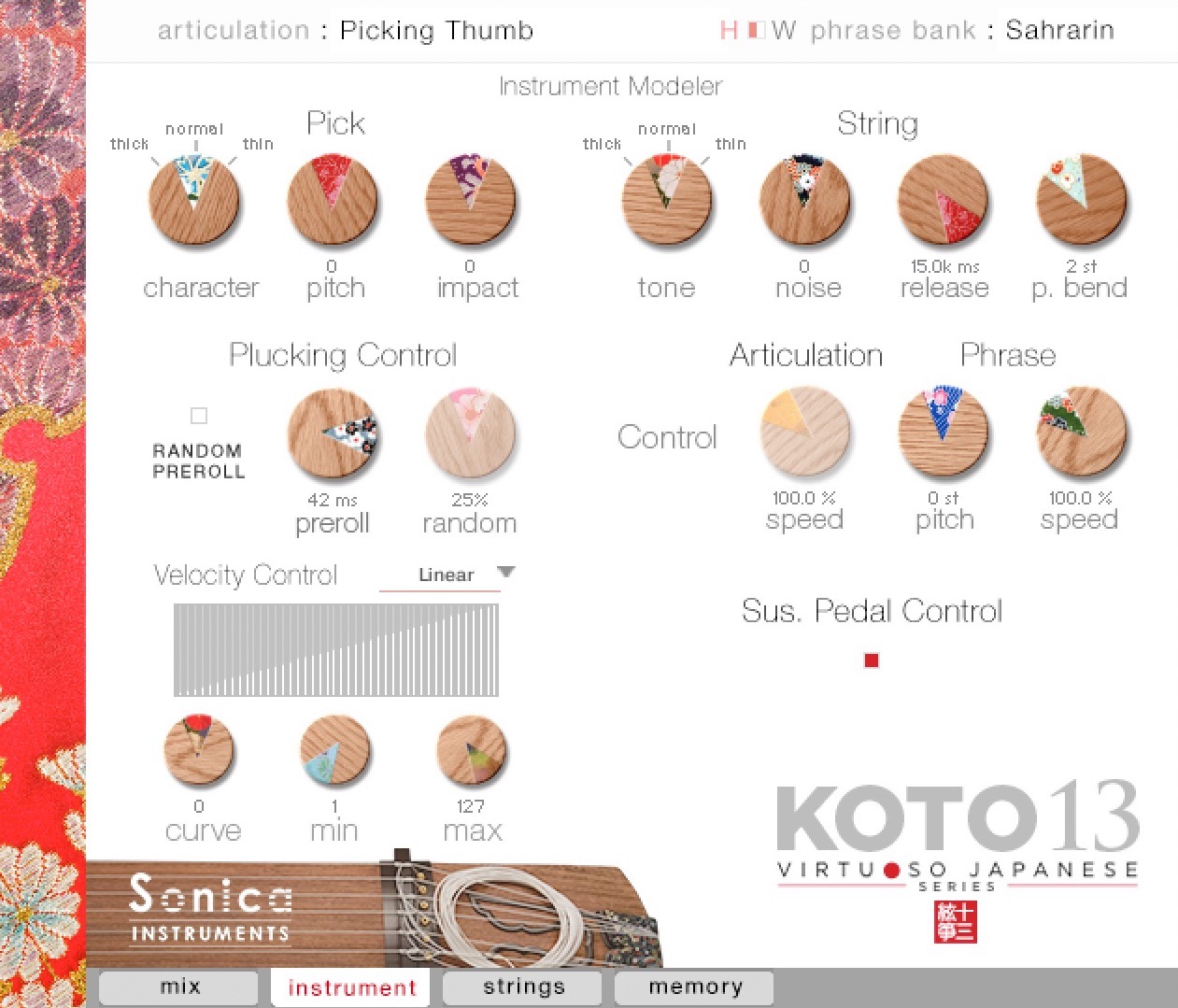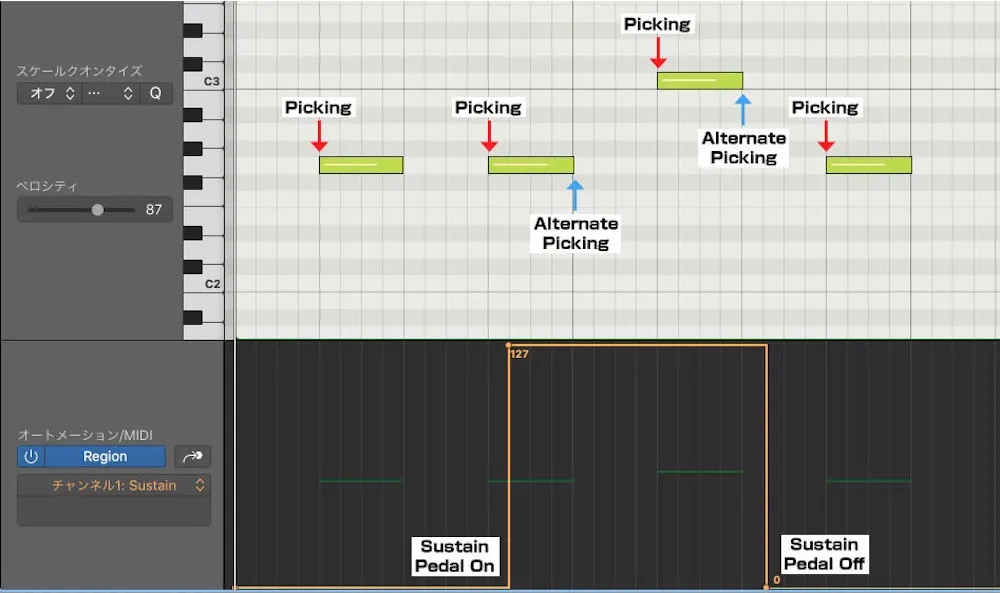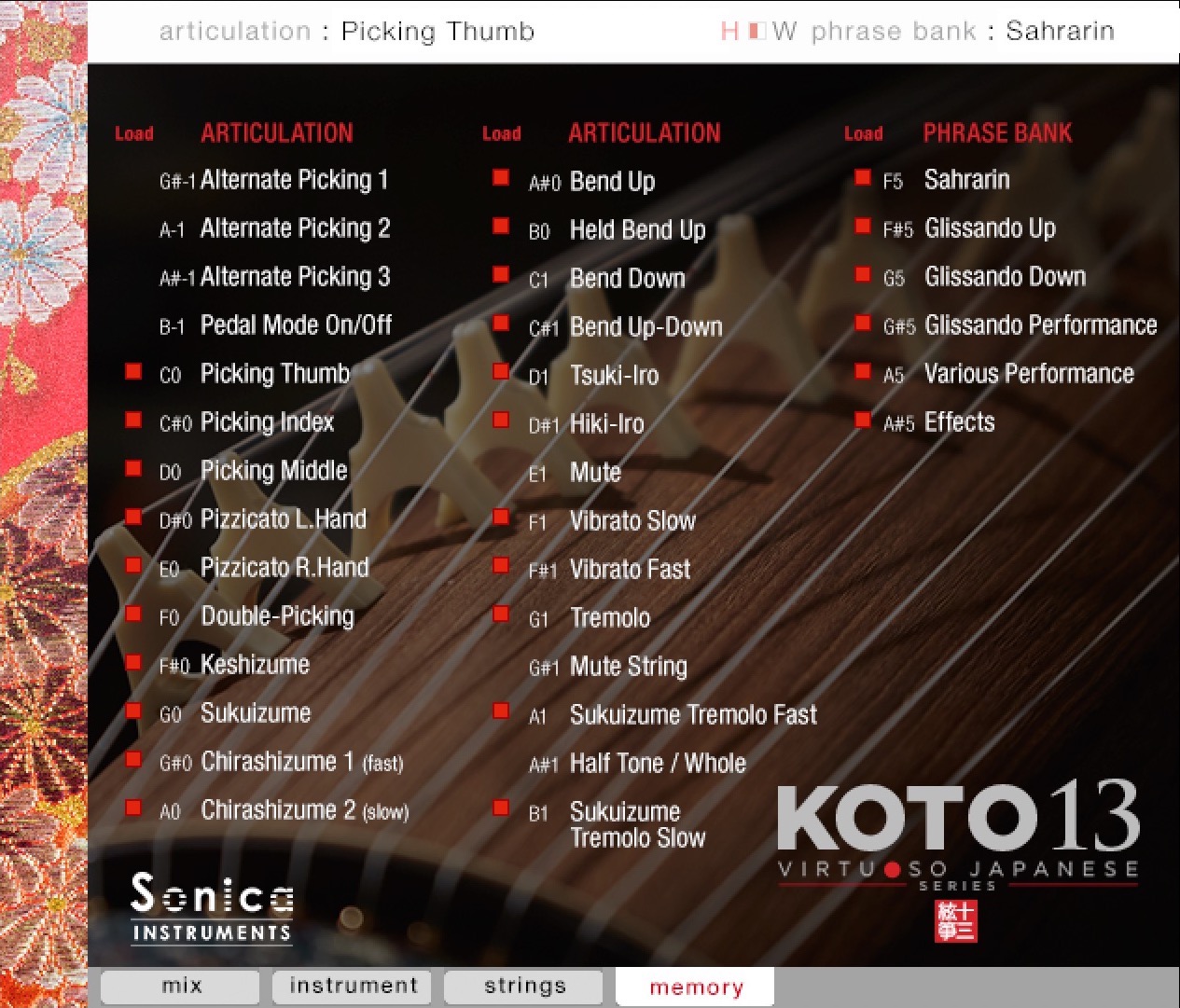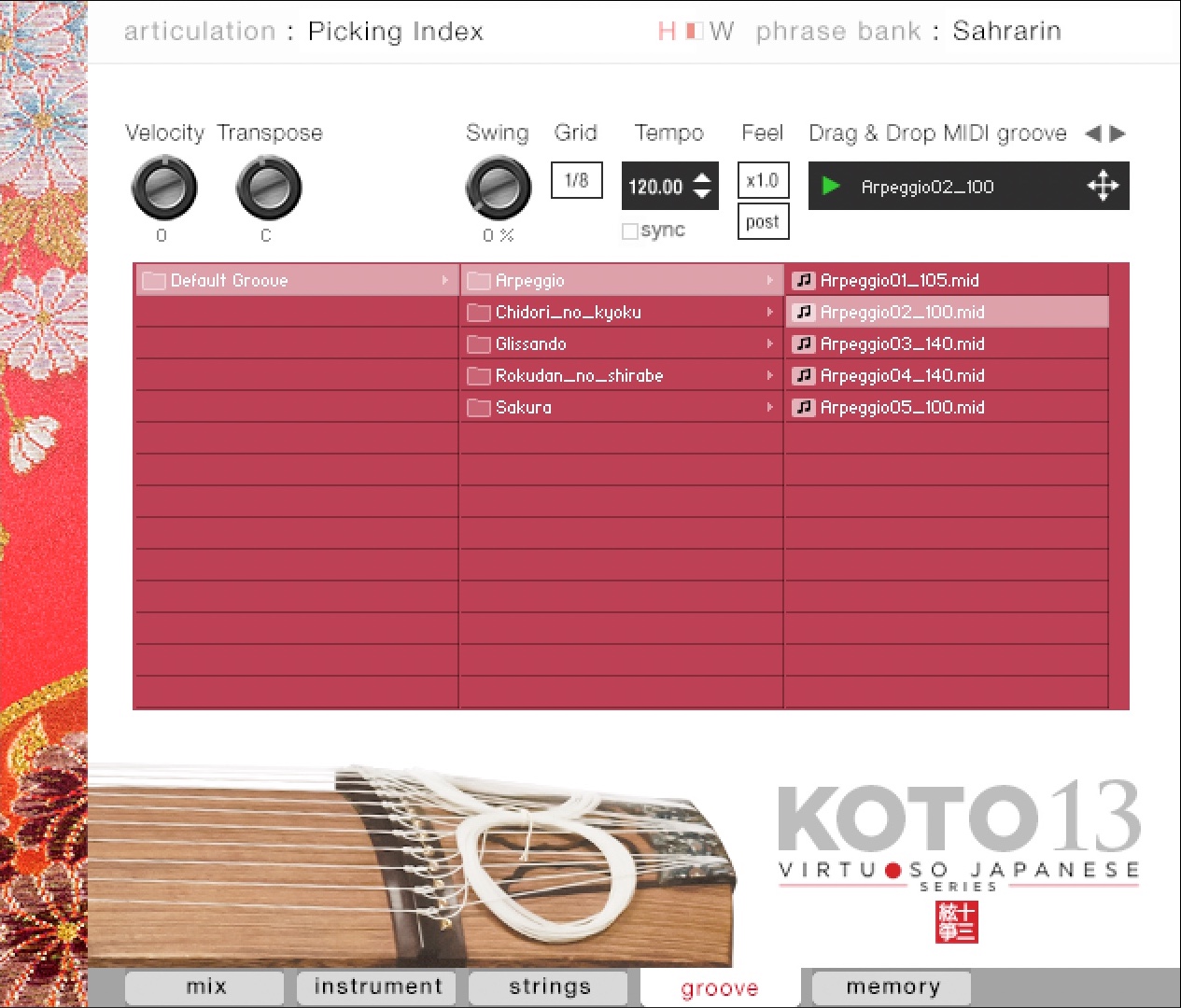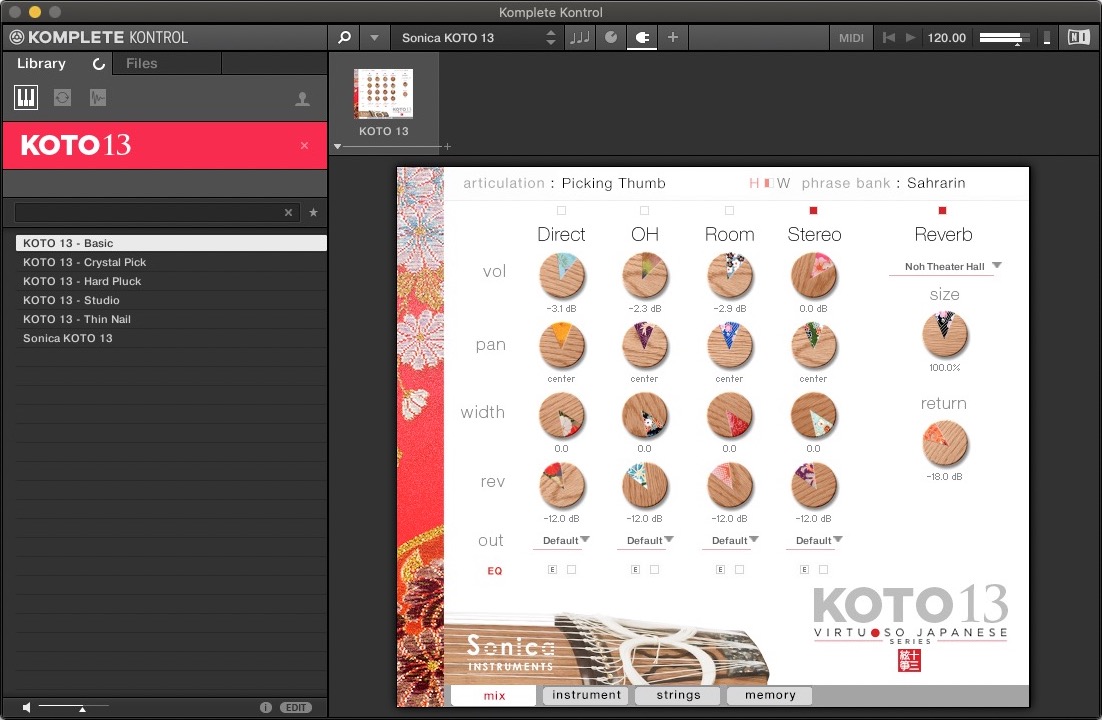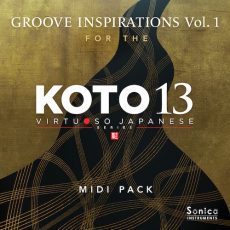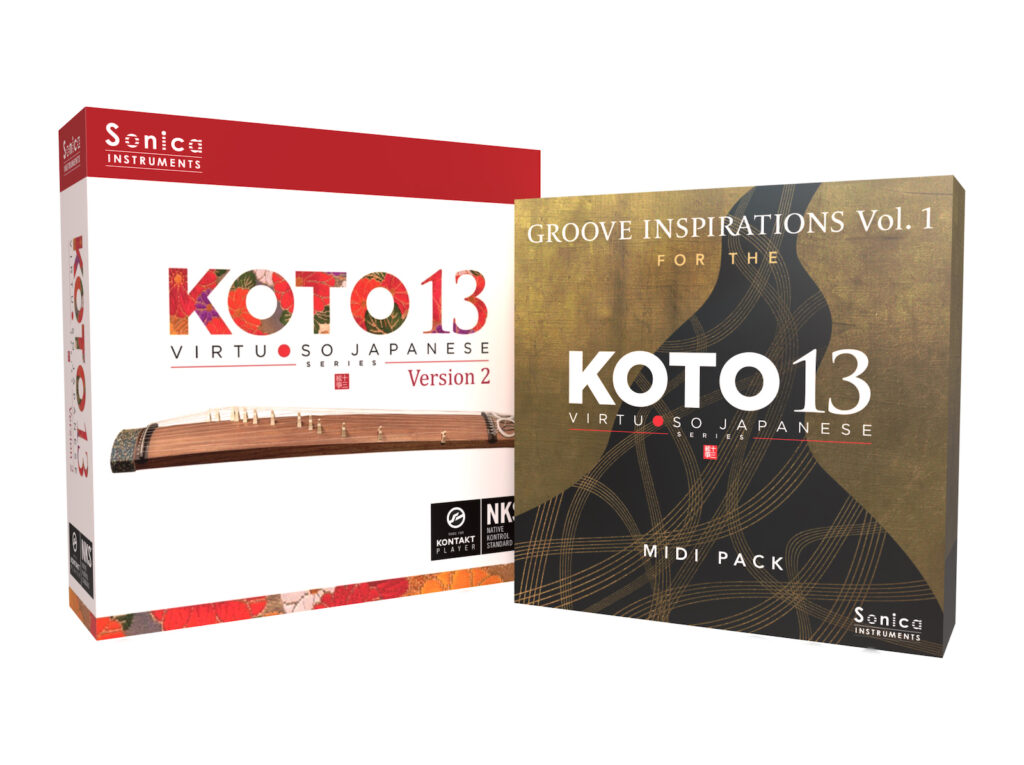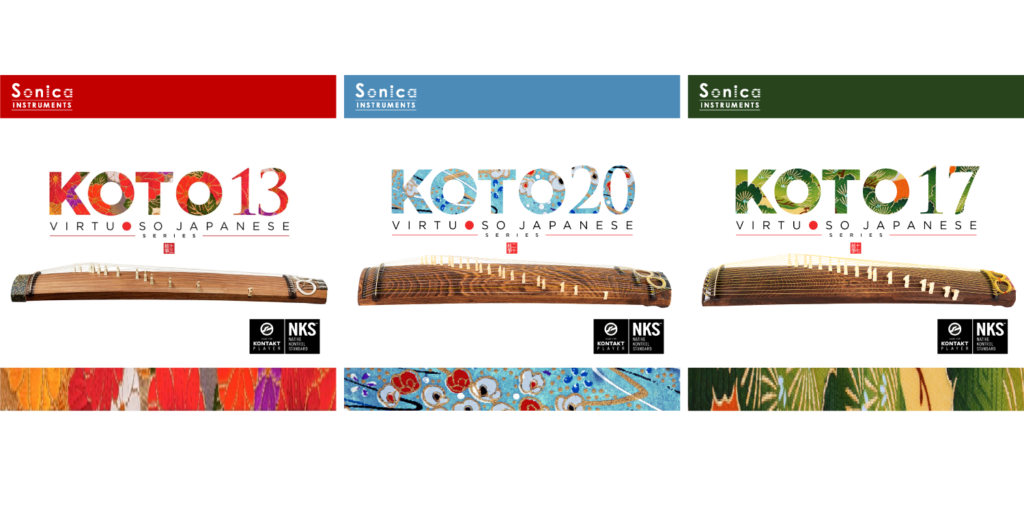Instrument Modeler reproduces sound variations from different fingerpicks and strings
The tonal characteristics of the koto vary a lot depending on the fingerpick and string thickness used. To faithfully reproduce these variations, we developed a new function called the Instrument Modeler.
With the Instrument Modeler, you can adjust individual parameters, including the fingerpick and string thickness (Thick, Normal, and Thin), the pitch and attack of note transients, and noise components. This functionality makes it possible to control the character of the sound any way you like, from a natural playing feel to very aggressive performances.

